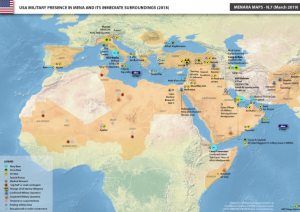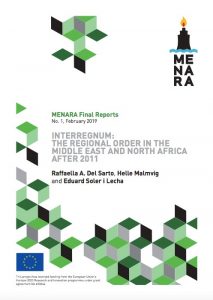MENARA Project
The MENARA Project – The Middle East and North Africa Regional Architecture: Mapping geopolitical shifts, regional order and domestic transformations – has come to an end after three years of work.
The project has analysed geopolitical shifts in the Middle East and North Africa (MENA), polarisation at the domestic level, fragmentation and conflict at the regional level and embeddedness in global trends.
MENARA provides a bottom-up assessment of these dynamics and their projection into the future. Our findings are based on numerous fact-finding missions (including in countries such as Syria, Libya and Iraq), almost 300 face-to-face interviews, a Delphi survey with 71 experts, 3 focus groups (Brussels, Rabat and Beirut) and 2 stakeholders meetings (Istanbul and Rome).
Watch the Menara Project Results Video
 |
| The Middle East and the EU: New Realities, New Policies |
|
On March 6th, MENARA and MEDRESET, both H2020 collaborative research projects, unveiled their findings during a public conference entitled “The Middle East and the EU: New Realities, New Policies”. The conference took place at Egmont Palace, in Brussels, and has included a key-note speech by Federica Mogherini , High Representative of the EU for Foreign Affairs and Security Policy and Vice President of the EU Commission.The conference aimed at fostering a debate among the Brussels-based experts and policy community on the present and the future of the Middle East and North Africa and in particular on the EU’s role towards this region. |
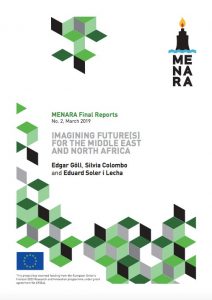 |
| By E. Göll, S. Colombo, E. Soler i Lecha |
|
Scenarios are imagined futures that can demonstrate how current actions may lead to dramatically different outcomes. As such they are useful tools to help guide strategy and shape the future. This report lays out scenarios for the Middle East and North Africa (MENA) with two time horizons: short term (2025) and long term (2050). |
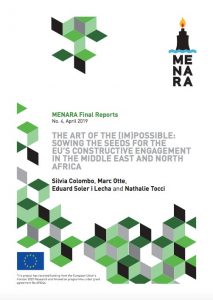 |
| By S. Colombo, M. Otte, E. Soler i Lecha, N. Tocci |
|
This report provides policy recommendations to European Union policy makers with regard to the EU’s engagement in the Middle East and North Africa (MENA) region. It draws on the inputs and insights gathered during three years of research conducted by the MENARA Project. It argues that designing a new flexible roadmap to advance mutual engagement and cooperation between the EU and the MENA is a key priority and an opportunity that should not be missed. |
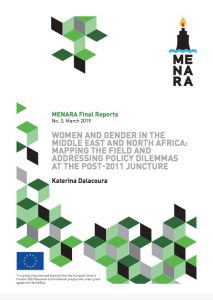 |
| By Katerina Dalacoura |
|
This report offers a “map” of the diverse situations of women in the post-2011 MENA region. It shows that there have been tremendous achievements and improvements in the lives of women in health and education but less progress in employment; and that legal inequalities remain widespread, as do limitations on women’s participation in politics and civil society. |
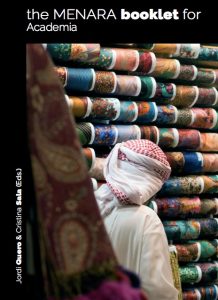 |
| MENARA Booklets |
|
The MENARA Booklets are a series of publications, created under the MENARA Project framework, which provide insights on the Middle East and North Africa regional order. These Booklets translate solid scholarly research into helpful insights for practitioners, including humanitarian agencies; development agencies and NGOs; the private sector; and academia. In each of the four Booklets you will find a compendium of articles and extracts covering the most pressing issues for your field of expertise. |
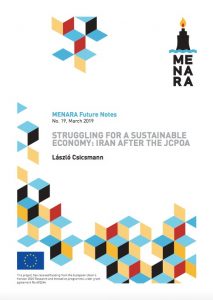 |
| By László Csicsmann |
|
Following the United States’ decision to withdraw from the JCPOA in May 2018, the Iran dossier has come back at the forefront of contemporary world politics. New rounds of sanctions imposed on Iran are likely to have a significant impact on the political and economic sustainability of the Islamic Republic, which has recently celebrated its 40th anniversary. |
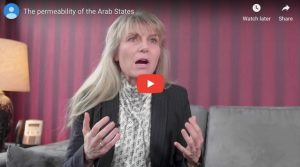 |
| MENARA Voices |
|
During the past three years, the project has produced 23 MENARA Voices that are a series of interviews and comments on specific issues with outstanding experts and stakeholders. |
